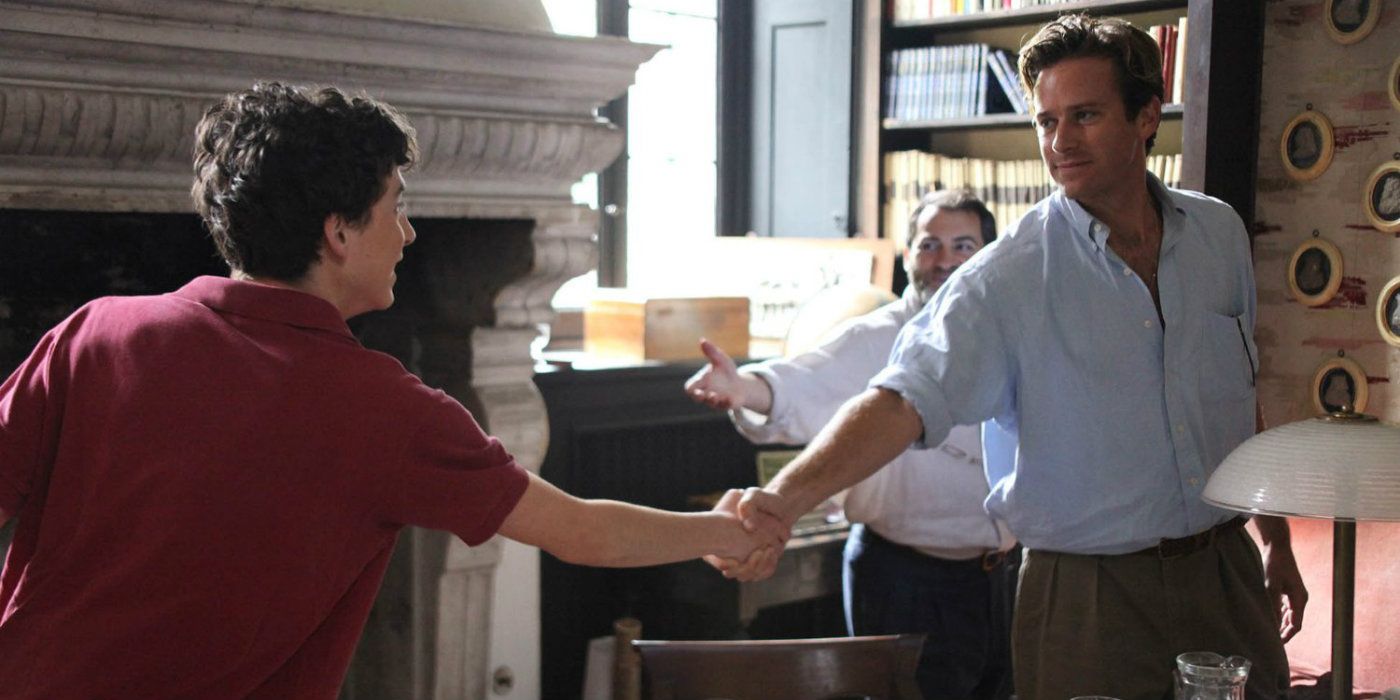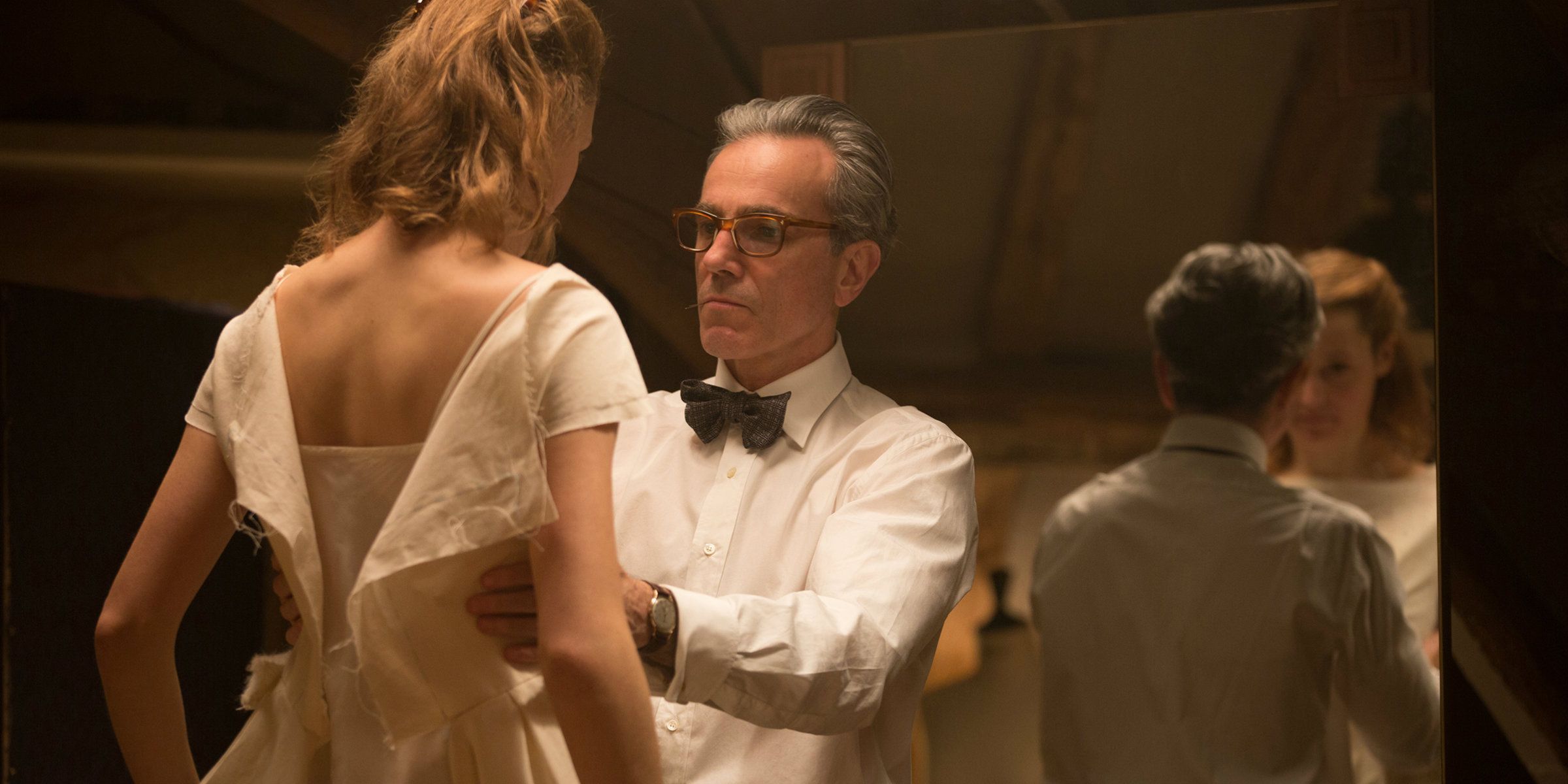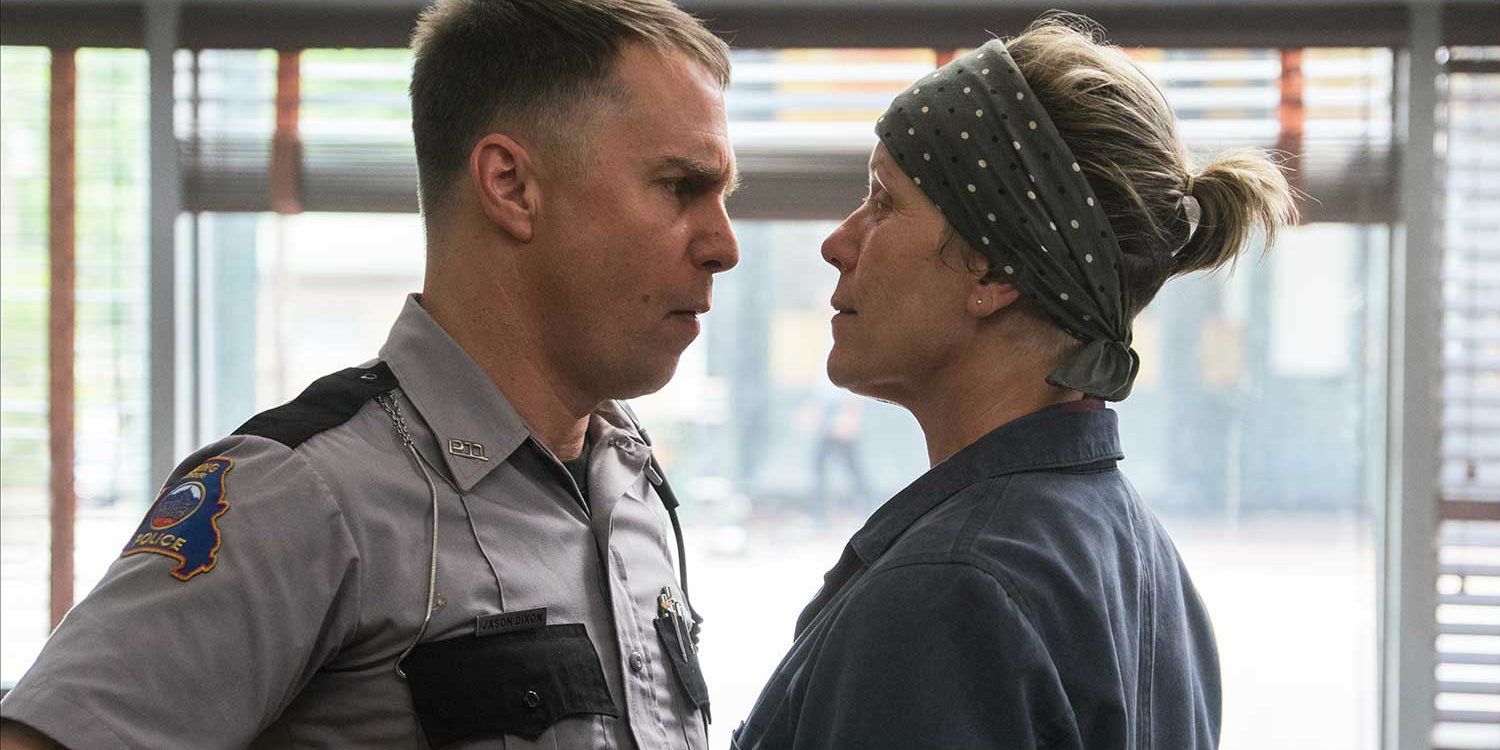The nominations for the 90th Academy Awards were announced early Tuesday morning, and for the most part there were no surprises. The likes of Call Me By Your Name, The Shape of Water, and Three Billboards Outside Ebbing, Missouri have dominated the film awards season leading up to the Oscars, and they all garnered plenty of nominations. But there's another aspect to the nominated films that's really no surprise at this point - the vast majority of people have not seen most of the nominated films.That's not due to some sort of public bias against arty films - other than Dunkirk and Get Out, none of the films nominated for Best Picture have been in wide release for more than a few weeks. Some are being shown in fewer than 1000 venues nationwide, following initial limited releases in elite, media-friendly markets like New York and Los Angeles. Until just a few days before the Oscar nominations were announced, Call Me By Your Name had only been shown in four theaters nationwide - despite having premiered at Sundance a full year prior. Paul Thomas Anderson's Phantom Thread was released the same weekend - again, following a limited release in L.A. and New York in December.Related: Oscars 2017 Broadcast Ratings Dip AgainThis is not a new trend; in the modern era, the Oscars - as well as all the other film awards ceremonies - have been populated by small scale, little-seen movies that are ostensibly of higher artistic merit (but narrower audience interest) than the massively budgeted, four quadrant tentpole films that now populate cinemas year-round. The Oscars made a concession to the latter category of movies in 2009, when they expanded the Best Picture nominations from five to a possible ten - essentially a direct result of Christopher Nolan's critically hailed The Dark Knight being snubbed in favor of the little-loved Nazi romance The Reader in 2008.It wasn't always like this. As recently as the early '00s, massively successful genre films like Gladiator and The Lord of the Rings: The Return of the King won the Oscars' top prize, and the '90s saw audience-pleasers like The Silence of the Lambs, Forrest Gump, and Titanic take home the gold. But somewhere along the line, a shift happened. The Oscars are no longer necessarily intended to honor what both audiences and critics might agree are the year's best films; rather, they've become an elaborate marketing tool to promote lesser-seen films that critics and industry professionals believe should be viewed by a wider audience. This is not necessarily a bad thing. There's a convincing argument to be made that films like Logan and Wonder Woman don't need the Oscars, but films like Lady Bird and Phantom Thread do. Oscar nominations for big-budget superhero films aren't going to raise their profiles and introduce them to wider audiences in the way they will for smaller scale, less flashy films like the latter pair. It's hard to imagine that Lady Bird would have pulled in nearly $40 million at the box office without the benefit of serious Oscar buzz. Call Me By Your Name, Darkest Hour, and The Shape of Water have all benefited from the same basic pattern - where Oscar buzz, strong reviews, and a desire to be part of the awards season conversation push people to see movies they may not otherwise have considered.But the problem arises with that last point. The long prestige film promotional process of festival screenings and extremely limited theatrical releases means that critics and insiders have not only seen these films months in advance of everyone else - they've already engaged in long, cyclical conversations and debates about them. A film can be critically hailed, experience a backlash, and then a counter-backlash before it's ever made widely available to general audiences. Only when Hollywood and its adjacent media have already come to a conclusion about what the "best" movies are, are general audiences finally permitted to see them and actually weigh in with their own opinions. But if the Best Picture nominees have already been voted on at that point, it sends a strong message that what the average person thinks of these movies doesn't really matter. General audiences become spectators of the conversation, instead of participants.This results in a disconnect that's only becoming more prominent as the way we discuss pop culture shifts away from our living rooms and onto Twitter. Ironically, it's also eating away at the very process it's supposed to be supporting - it's no coincidence the Oscars ceremony's ratings continue to decline as the categories are increasingly populated by films that few people have seen. What exactly will be the point of an Oscar campaign if nobody is watching the Oscars?
This is not necessarily a bad thing. There's a convincing argument to be made that films like Logan and Wonder Woman don't need the Oscars, but films like Lady Bird and Phantom Thread do. Oscar nominations for big-budget superhero films aren't going to raise their profiles and introduce them to wider audiences in the way they will for smaller scale, less flashy films like the latter pair. It's hard to imagine that Lady Bird would have pulled in nearly $40 million at the box office without the benefit of serious Oscar buzz. Call Me By Your Name, Darkest Hour, and The Shape of Water have all benefited from the same basic pattern - where Oscar buzz, strong reviews, and a desire to be part of the awards season conversation push people to see movies they may not otherwise have considered.But the problem arises with that last point. The long prestige film promotional process of festival screenings and extremely limited theatrical releases means that critics and insiders have not only seen these films months in advance of everyone else - they've already engaged in long, cyclical conversations and debates about them. A film can be critically hailed, experience a backlash, and then a counter-backlash before it's ever made widely available to general audiences. Only when Hollywood and its adjacent media have already come to a conclusion about what the "best" movies are, are general audiences finally permitted to see them and actually weigh in with their own opinions. But if the Best Picture nominees have already been voted on at that point, it sends a strong message that what the average person thinks of these movies doesn't really matter. General audiences become spectators of the conversation, instead of participants.This results in a disconnect that's only becoming more prominent as the way we discuss pop culture shifts away from our living rooms and onto Twitter. Ironically, it's also eating away at the very process it's supposed to be supporting - it's no coincidence the Oscars ceremony's ratings continue to decline as the categories are increasingly populated by films that few people have seen. What exactly will be the point of an Oscar campaign if nobody is watching the Oscars? It doesn't have to be this way. The advent of streaming services means there's a viable way for general audiences to see these films at the same time as the Film Twitter elite, who often have enough time to calcify a film's reputation months before the general public even get a look at it. Beasts of No Nation was acquired by Netflix in 2015, who streamed it globally months before awards season really heated up. Amazon acquired 2016 Oscar contender Manchester By The Sea, and while they didn't make the film available online before that year's awards season, it's obvious that they could have. Mudbound - nominated this year for four Oscars - was acquired by Netflix, and went into limited release the same week it was made available for everyone via the streaming platform, in what seems like the most obvious model for solving a lot of these problems going forward.Streaming behemoths like Netflix and Amazon have the money to both acquire and properly promote these sort of films - and, perhaps most importantly, they can make everyone an informed part of the Oscars conversation. The notion that the average moviegoer has no interest in arty, high-minded films is not only wrong, it's insulting. For one thing, we live in the era of prestige television, where shows like The Crown, Atlanta, and Big Little Lies prove people are interested in more than just empty thrills.Related: Logan Has A Real Chance Of Winning Its Big OscarIt should of course be acknowledged that the best way to see these movies is in theaters, and ideally everyone would both choose and have the ability to enjoy them that way. But the way we consume media is changing rapidly, and wide theatrical releases are often just not viable for smaller films. If someone has to drive several towns over - or even to a different state - to see Phantom Thread after it's already been nominated for multiple Oscars, perhaps it's worth considering a better alternative. VOD should be a perfectly reasonable middle ground for many of these films, especially the smaller indies like Lady Bird and Call Me By Your Name.
It doesn't have to be this way. The advent of streaming services means there's a viable way for general audiences to see these films at the same time as the Film Twitter elite, who often have enough time to calcify a film's reputation months before the general public even get a look at it. Beasts of No Nation was acquired by Netflix in 2015, who streamed it globally months before awards season really heated up. Amazon acquired 2016 Oscar contender Manchester By The Sea, and while they didn't make the film available online before that year's awards season, it's obvious that they could have. Mudbound - nominated this year for four Oscars - was acquired by Netflix, and went into limited release the same week it was made available for everyone via the streaming platform, in what seems like the most obvious model for solving a lot of these problems going forward.Streaming behemoths like Netflix and Amazon have the money to both acquire and properly promote these sort of films - and, perhaps most importantly, they can make everyone an informed part of the Oscars conversation. The notion that the average moviegoer has no interest in arty, high-minded films is not only wrong, it's insulting. For one thing, we live in the era of prestige television, where shows like The Crown, Atlanta, and Big Little Lies prove people are interested in more than just empty thrills.Related: Logan Has A Real Chance Of Winning Its Big OscarIt should of course be acknowledged that the best way to see these movies is in theaters, and ideally everyone would both choose and have the ability to enjoy them that way. But the way we consume media is changing rapidly, and wide theatrical releases are often just not viable for smaller films. If someone has to drive several towns over - or even to a different state - to see Phantom Thread after it's already been nominated for multiple Oscars, perhaps it's worth considering a better alternative. VOD should be a perfectly reasonable middle ground for many of these films, especially the smaller indies like Lady Bird and Call Me By Your Name. But what Hollywood should really be considering is something far more radical. The Academy could sponsor something like a "For Your Consideration" streaming service, where cinephiles can pay a fee to stream the Oscar hopefuls and actually be part of the discussion about which movies are most deserving. For many reasons, it would be imperative that this have some sort of limited time window, with these films only being made available for a month or so leading up to the nominee announcements, so that they could still make money from a theatrical and VOD release later on. Alternatively, there could be a collaboration with a streaming service like Netflix or Amazon, who could host something like an "Awards Season Month," potentially for an extra fee.The bottom line is this: there are relatively easy, practical ways to get more eyeballs on films like Call Me By Your Name and Lady Bird, and these are films that deserve to be seen by people who aren't lucky enough to live in New York or Los Angeles - not months after their media hype has reached its peak, but right in the midst of it. People want to see these movies, they want to be part of the conversation around them, and Hollywood needs to realize it's in everyone's best interests to let them in.-Next: Oscars: How To Watch The 2018 Best Picture Nominees
But what Hollywood should really be considering is something far more radical. The Academy could sponsor something like a "For Your Consideration" streaming service, where cinephiles can pay a fee to stream the Oscar hopefuls and actually be part of the discussion about which movies are most deserving. For many reasons, it would be imperative that this have some sort of limited time window, with these films only being made available for a month or so leading up to the nominee announcements, so that they could still make money from a theatrical and VOD release later on. Alternatively, there could be a collaboration with a streaming service like Netflix or Amazon, who could host something like an "Awards Season Month," potentially for an extra fee.The bottom line is this: there are relatively easy, practical ways to get more eyeballs on films like Call Me By Your Name and Lady Bird, and these are films that deserve to be seen by people who aren't lucky enough to live in New York or Los Angeles - not months after their media hype has reached its peak, but right in the midst of it. People want to see these movies, they want to be part of the conversation around them, and Hollywood needs to realize it's in everyone's best interests to let them in.-Next: Oscars: How To Watch The 2018 Best Picture Nominees

